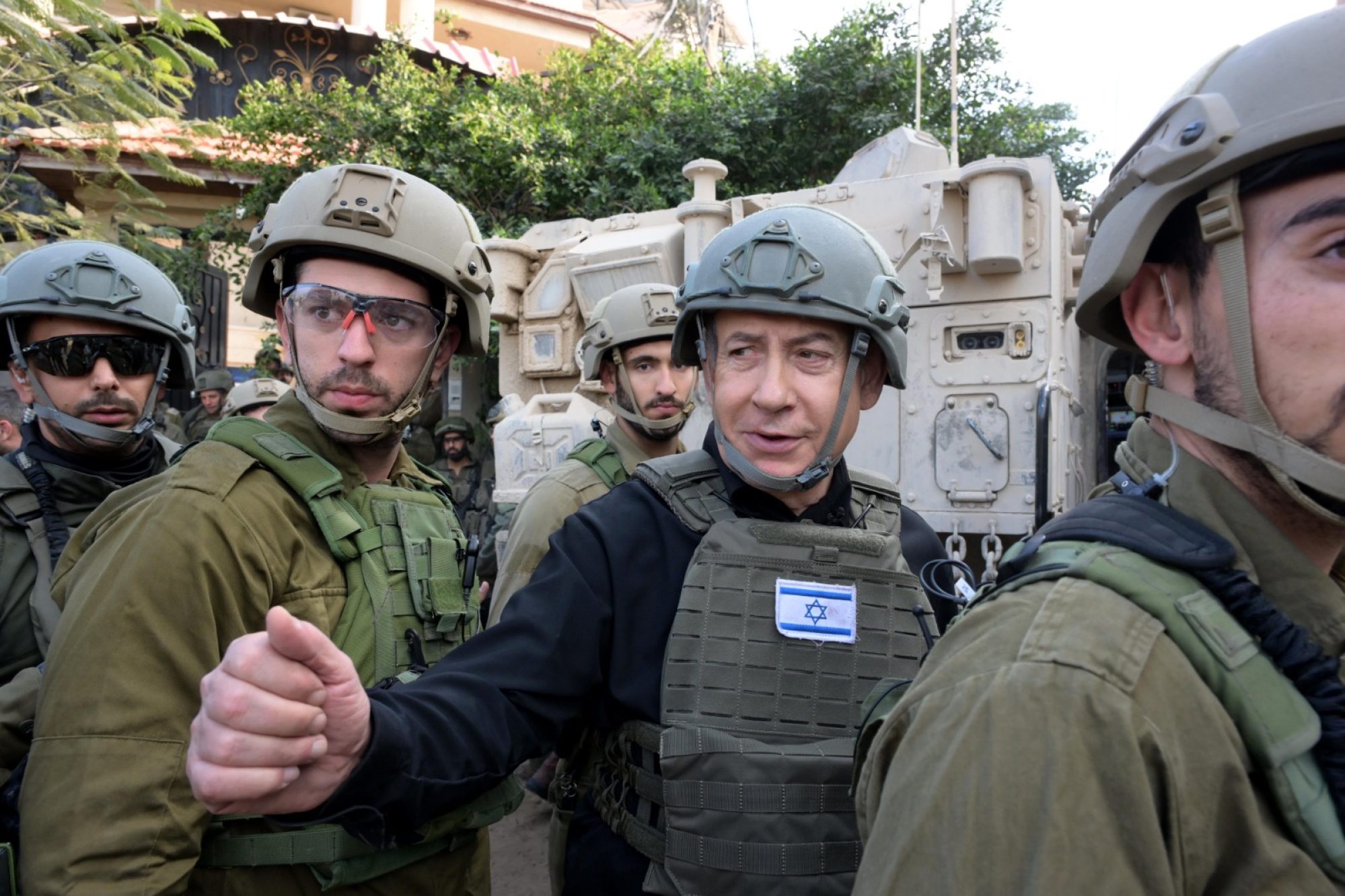Israel launches more strikes on Gaza, as Netanyahu says no peace until Hamas destroyed, Palestinian society ‘deradicalised’
“Seventy-five years of suffering, our rights taken, our country seized, and our people slaughtered. Our rights, as people, are justifiable. What can we do?” said Mariam al-Omsi, walking along an alleyway after an air strike in Shaboura camp, near the town of Rafah in southern Gaza.
At Nasser Hospital in Khan Younis, the largest medical facility in the southern Gaza Strip, doctors said 10 Palestinians had been killed in two separate Israeli air strikes.
Israel plans to raise defence spending by US$8 billion in 2024 amid war in Gaza
Khan Younis resident Salah Shaat said he had heard a huge explosion at sunset on Monday that destroyed a building.
“There were displaced people and residents inside the house, more than 20 people, children and women. We managed to rescue some children, but the rest were martyred,” he said.
In Jerusalem, Israel’s military said the air force carried out a strike against 100 Hamas targets, including tunnel shafts, to assist ground forces.
It said in a statement that in Shejaia, a suburb near Gaza City, troops backed by aircraft killed several fighters spotted trying to plant a bomb underneath a tank. More than 10 fighters were killed in separate incidents in Khan Younis.
Global concern has mounted and international calls for a ceasefire have multiplied but Netanyahu vowed to stay the course in an op-ed published in the Wall Street Journal late Monday.

“Hamas must be destroyed, Gaza must be demilitarised and Palestinian society must be deradicalised,” he argued. “These are the three prerequisites for peace between Israel and its Palestinian neighbours in Gaza.”
Once the fighting ends, he said, “for the foreseeable future Israel will have to retain overriding security responsibility over Gaza” and build a “temporary security zone on the perimeter” of the territory.
Netanyahu had earlier visited Israeli troops inside Gaza, then reportedly told a meeting of his conservative Likud party that “we’re not stopping … We’re intensifying the fighting in the coming days” and dismissed what he cast as media speculation his government might call a halt to the fighting.
Netanyahu told Likud party members on Monday that he was ready to support the voluntary migration of civilians out of the Gaza Strip, the Israeli newspaper Haaretz reported.
He reportedly told party members “our problem is not whether to allow an exit, but that there will be countries that are willing to absorb an exit”.
Hamas rejected as “absurd” any such discussion. Palestinians “refuse to be deported and displaced”, it said in a statement. “There can’t be exile and there is no other choice than to remain on our land.”
Retaliating against Hamas’ October 7 cross-border rampage in which it killed 1,200 people and took about 240 hostage, Israel has been under pressure from top ally the US to shift to lower-intensity warfare and to reduce civilian deaths.
More than 20,900 Gazans have been killed, including 240 in the last 24 hours, according to authorities in Gaza.
Elsewhere in the region, US forces have come under attack by Iran-backed militants in Iraq and Syria over Washington’s backing of Israel in its war against Hamas in the Gaza Strip.
In the latest tit-for-tat clash, the US military carried out retaliatory air strikes on Monday in Iraq after a drone attack by Iran-aligned militants on a US base in Arbil left one US service member in critical condition and wounded two other US personnel, officials said.
The air strikes killed “a number of Kataib Hezbollah militants” and destroyed multiple facilities used by the group, the US military said.
Iran-Hamas ties
Hezbollah has deep ties to Hamas and Islamic Jihad, another Palestinian faction backed by Iran.
The US military has come under attack at least 100 times in Iraq and Syria since the Israel-Gaza war began in October, usually with a mix of rockets and one-way attack drones.
Washington has for weeks pressured Israel to take further steps to minimise civilian harm by designating safe areas and clearing humanitarian routes for people to escape. But the death toll keeps rising and Israeli operations have intensified.
Gemma Connell, a UN team leader deployed in Gaza, described what she called a “human chess board” in which thousands of people, displaced many times already, are on the run again and there is no guarantee a destination will be safe.
‘Only beatings and beatings’: Palestinians recount Israeli army torture
A spokesperson for the Israeli military said the army takes all feasible precautions to minimise harm to civilians, but that Palestinian militants use civilians as human shields – an accusation Hamas denies.
Since the October 7 Hamas attack, Israel has laid much of the narrow strip to waste. The vast majority of Gaza’s 2.3 million population have been driven from their homes, and the United Nations says humanitarian conditions are catastrophic.
The Gaza war has also stoked violence in the Israeli-occupied West Bank, another territory where Palestinians seek statehood. Medics said two Palestinian males, aged 17 and 31, were shot dead by Israeli troops near the West Bank city of Hebron on Tuesday. A military spokesperson said soldiers opened fire at Palestinians who threw rocks, breeze blocks and petrol bombs at them.
